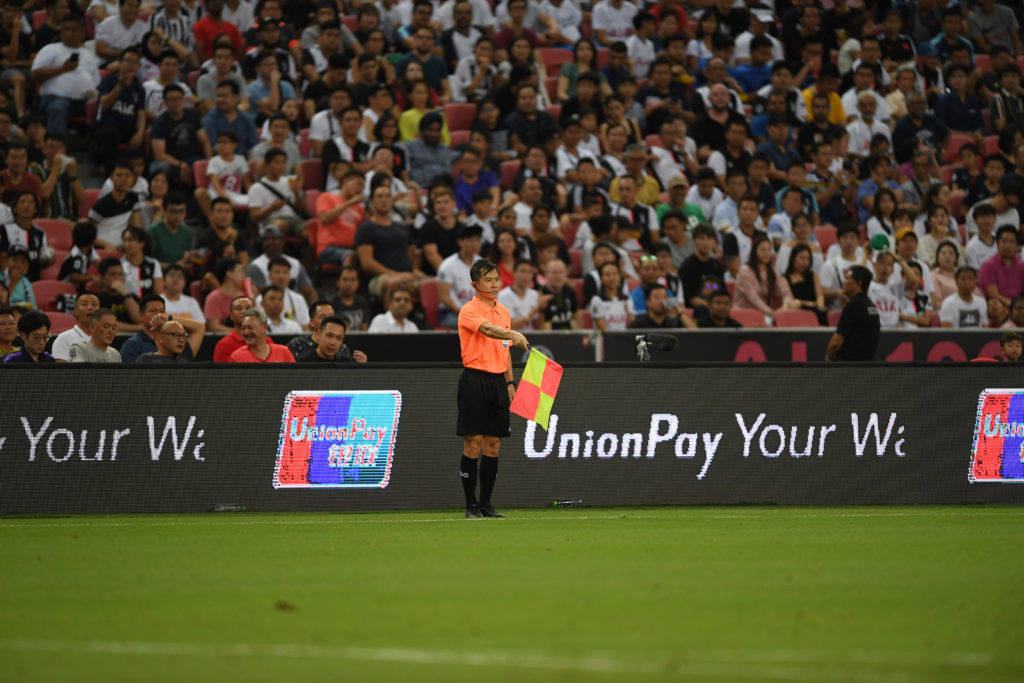How do you process a very poor performance? How do you move on from a performance that is so disappointing that you want to leave the field of play as fast as possible?
Every referee can point to that one awful performance they would want to remove from their career.
Many officials reach out to ask how they can move forward after such poor performances.
A terrible performance on matchday can leave you feeling emotionally and mentally defeated. You may begin to lose confidence in your refereeing ability and feel so embarrassed or nervous to face your coach and/or manager that you don’t want to even show up to training meetings or a post-match debrief.
The bad performance itself is not the problem. As stated before, even the best officials in the world have days nothing they try comes off for them. The problem is when the bad performance becomes repetitive in your head. Replaying and reliving bad performances evokes a powerful negative emotional response that can create a performance rut that is difficult to get yourself out of.
If you allow a bad performance to overawe your mindset, it will affect your future performances. You will feel stuck, anxious and fearful that you will repeat this performance over and over.
Player’s Perspective
“Disastrous” is how Women’s Tennis Association player Sofia Kenin described her 6-0, 6-0 loss to Victoria Azarenka at the 2020 Italian Open.
Kenin was ranked No. 3 in the world before being whitewashed by Azarenka.
“We came to Paris and I had a week or so to practice, to get used to the clay. I just tried to not think about that match. That match I’m never gonna watch.” – Sofia Kenin, Women’s Tennis Association player.
A lot of referees struggle to shed the memories of bad performances. But if you continue to relive the bad experience, it only makes it harder to forget.
Re-watching your internal film of a bad performance causes the ending stick in your mind and makes it feel impossible to move forward.
What you choose to watch over and over, you expect to repeat. When you replay negative performances, the likelihood is that you will continue to have additional poor performances.
How do you put horrible performances behind you?
Change the channel, watch something else, tune into or focus on something that leads to better results.
Visualisation
Visualisation is an effective strategy to turn the channel to the positive:
- Visualise past top officiating performances.
- Visualise how you want to perform out in the middle in future.
- Visualise yourself bouncing back from mistakes or poor performances and achieving success.
Getting back on the horse, so to speak, depends on how quickly you change your mental channels and focus on self-enhancing images.
Moving On After a Poor Performance:
Feed yourself a daily dose of self-enhancing images. Avoid replaying the inaccurate decisions in your mind.
Visualise 10-15 minutes every day and see yourself performing how you want to perform with a whistle in hand.
Replace the bad images in your mind with positive imagery to overcome bad performances.
Don’t allow negative images to ruin your performance. Feed yourself with positive images through visualisation and you will enhance your performance.
At The Third Team I work individually and in collaboration with different professionals where I have developed workshops associated with Resilience and Mental Toughness Development to help referees. The workshops are interactive, where referees are encouraged to open up and share their experiences to help each other.
Feel free to contact me if you’d like to know more about my workshops and how I could help you or your officials.
Best Wishes,

Nathan Sherratt
Referee Educator & Managing Director of The Third Team

Nathan Sherratt
Nathan Sherratt, Referee Educator, Resilience Trainer and Managing Director of The Third Team. A Mental Toughness Practitioner based in County Durham, North East England.


